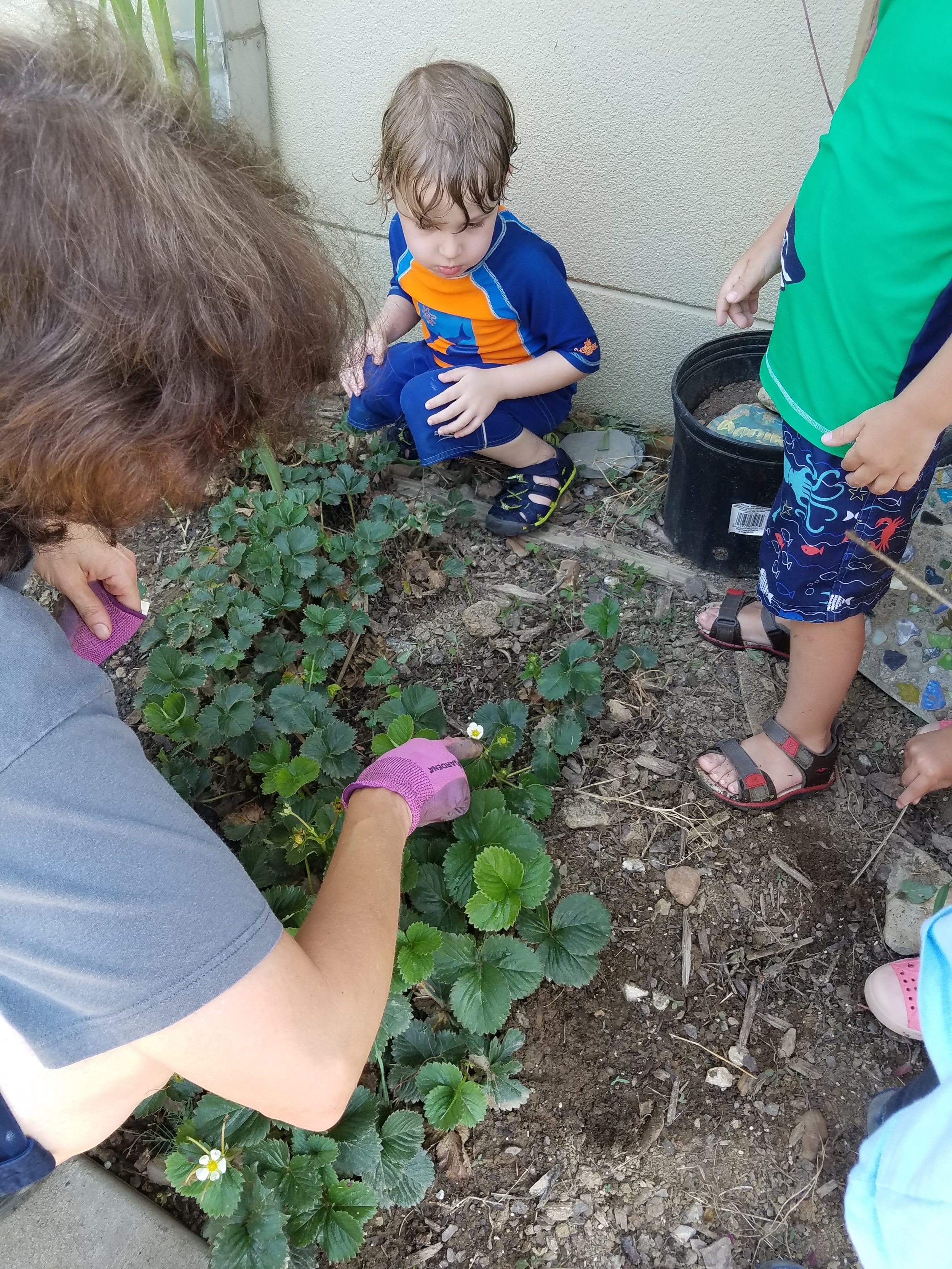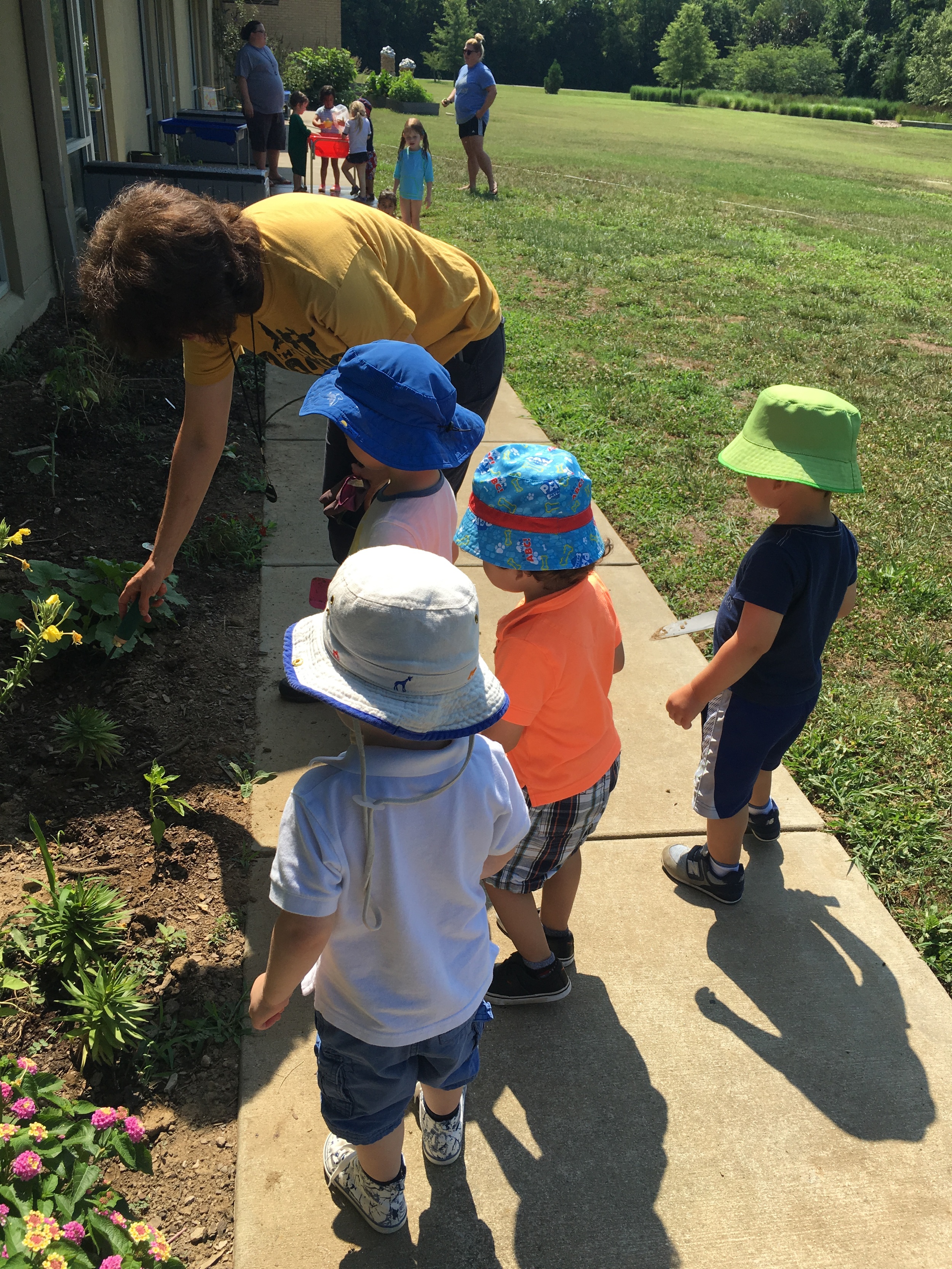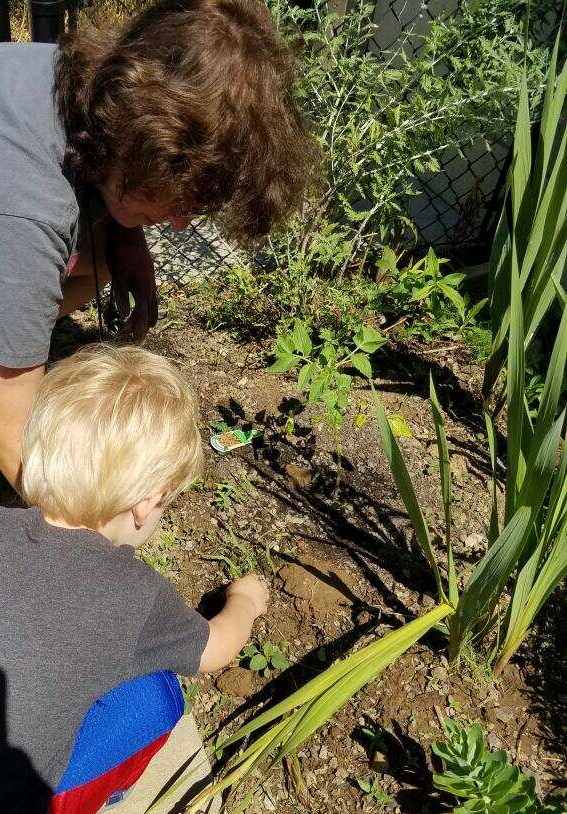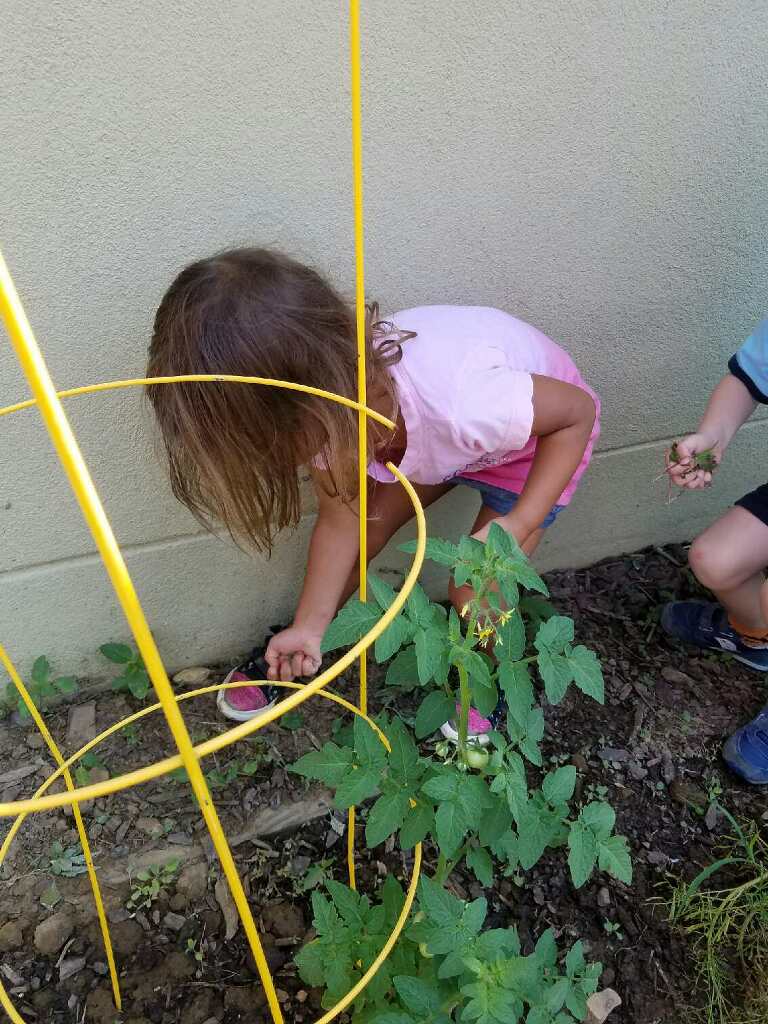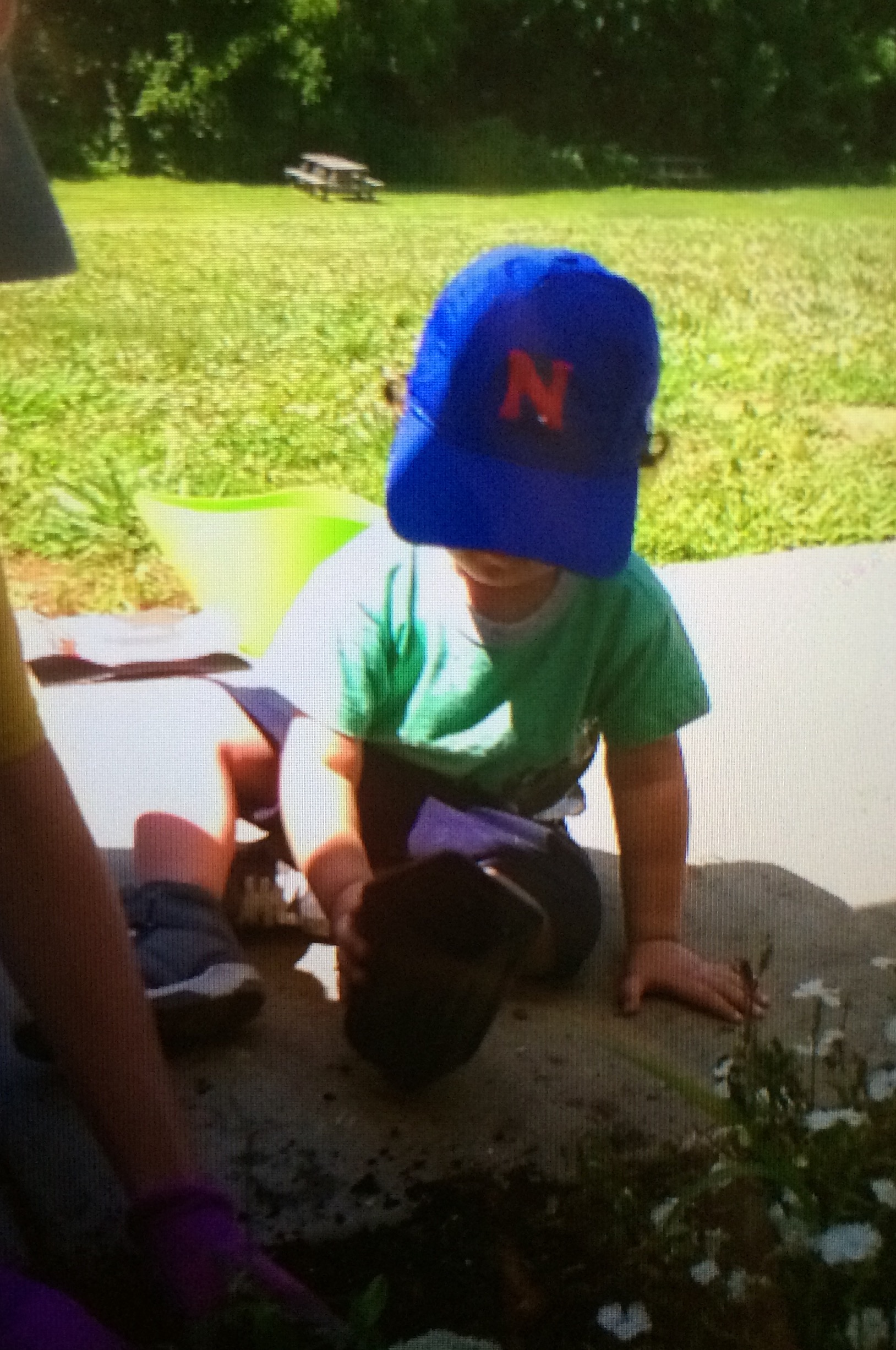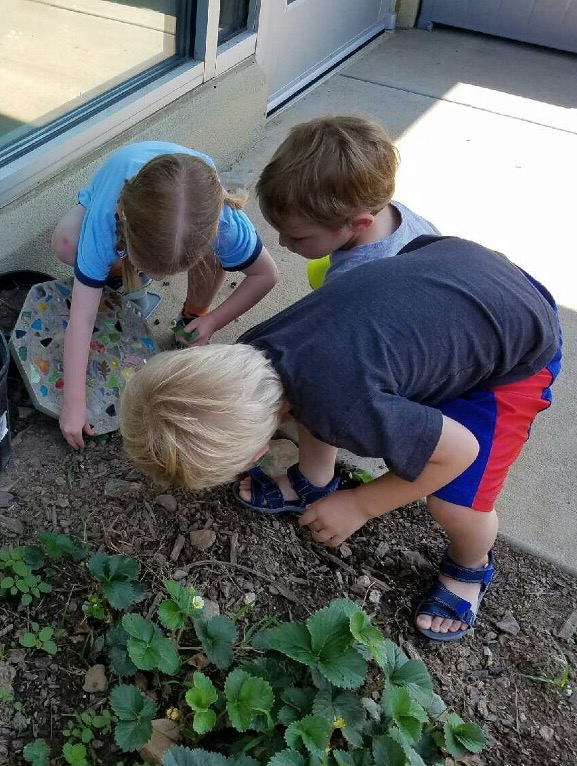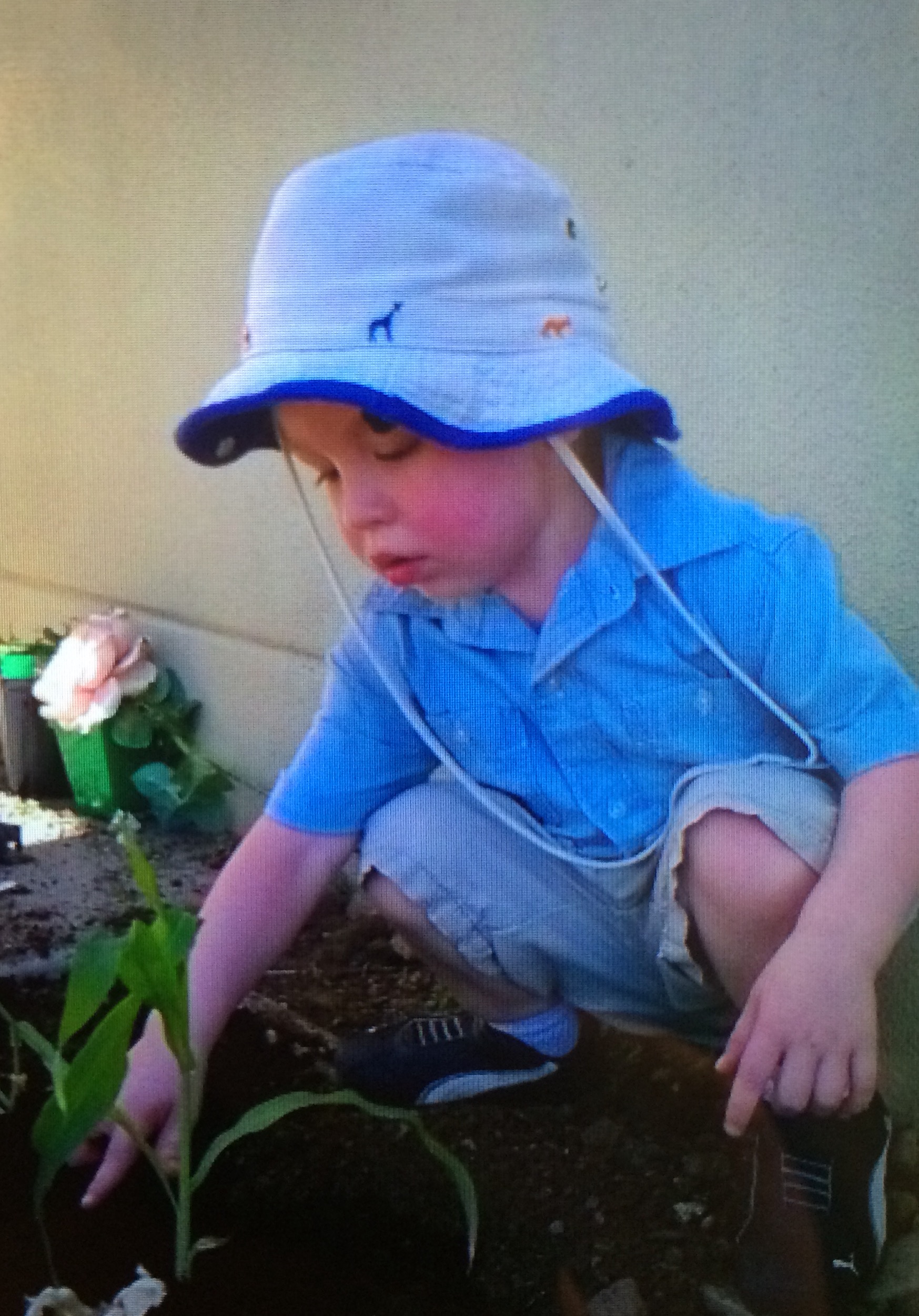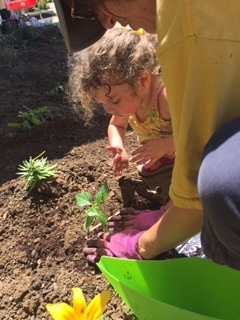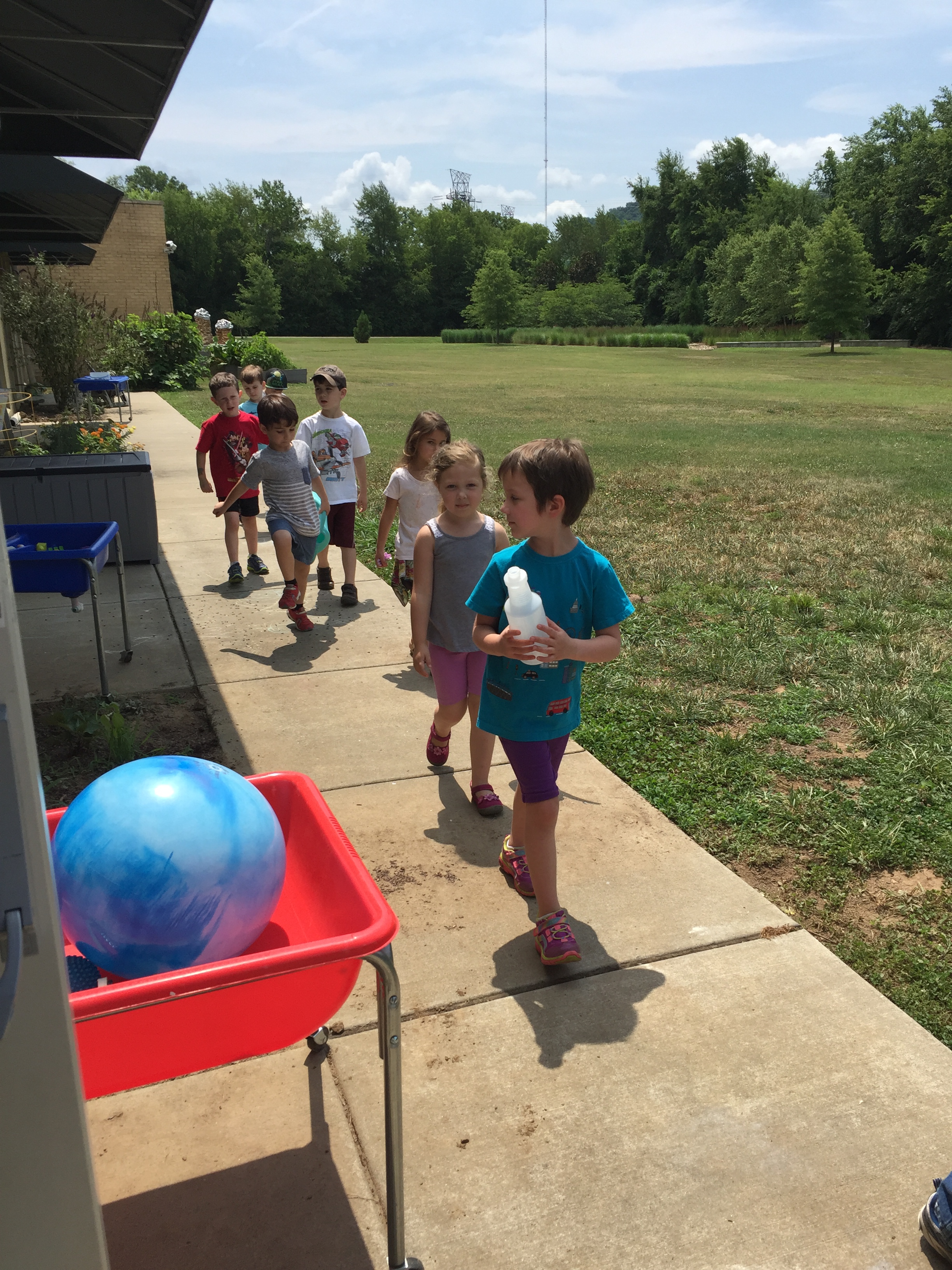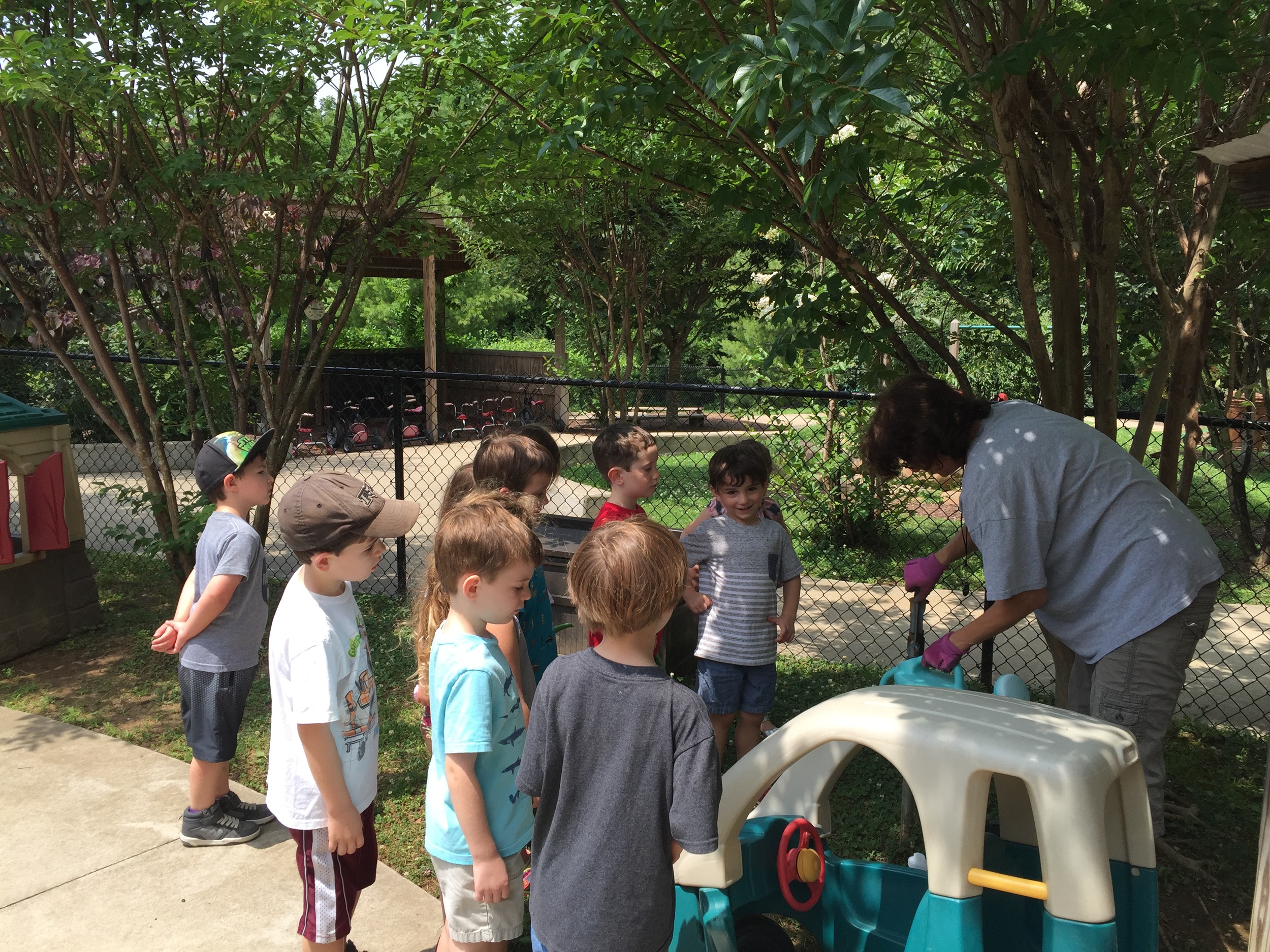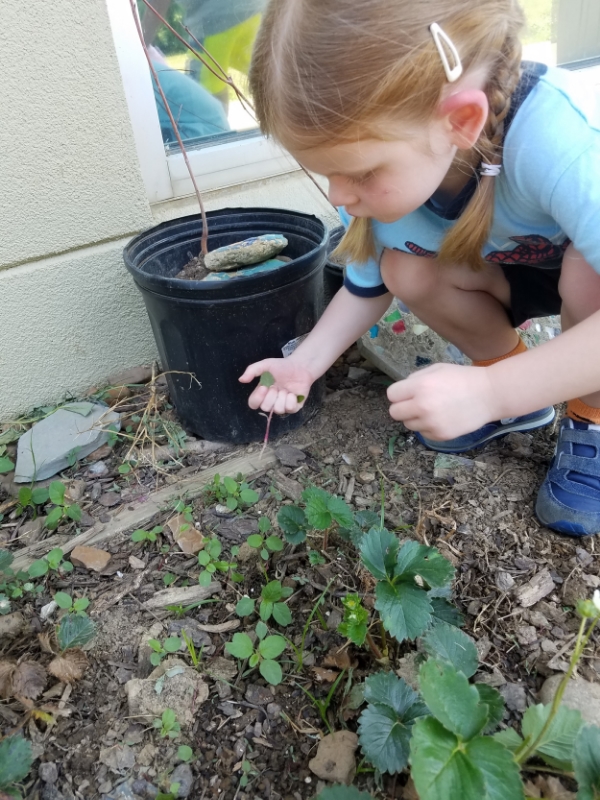Resource for families:
Article: Children Learn So Much From Cooking!
Here’s a glimpse of the rest of the week and how you can incorporate activities at home...
Tinkering Tuesday: Build together, work together
When children build together they explore math and science concepts and develop their social and early literacy skills. Children can use any building material--from a fort of branches on the playground to a block city in the classroom, or a hideaway made from couch pillows at home.
Try this: Practice organizing blocks by size! Try building a block tower with large blocks on the bottom and little blocks on top! OR build a fort in the living room!
Resource for families:
Article: 10 Things Every Parent Should Know about Play
Whimsical Wednesday: Let’s be silly together!
Young children have a special preference for silliness! Experts believe that silliness has important developmental benefits for building social skills, cognitive thinking and creativity. Laughter creates a bond between people. Stretching the imagination, thinking outside the box, and learning to look at a situation from different angles are other long-term benefits of developing a sense of humor. Dr. Seuss is the best example of taking silly words and creating meaning with his message!
Try this: Reading Dr. Seuss books, Singing silly songs while in the car, play rhyming game using names
Resource for families:
Article: Encouraging Your Child's Sense of Humor
Book: Pre-School Parenting Secrets: Talking with the Sky by Brian Caswell
Theatrical Thursday: Think, problem solve, create
Children develop creativity, social skills and fine motor skills with open-ended art projects where they can make choices, use their imaginations, and create with their hands. On Theatrical Thursday celebrate the joy and learning children experience when engaged in creative thinking and art making. Use any materials - from your imaginations to crayons to paint, clay to crafts!
Try this: Take art projects outside! Offer light and dark paper! Act out scenarios. Create fantastical tales with words randomly chosen by the children and then make a picture book of the story!
Resource for families:
Article: How Dramatic Play Can Enhance Learning
Article: Meaningful Art Projects Parents Can Fit Into a Busy Day
Family Friday:
Engaging and celebrating families is at the heart of supporting our youngest learners. We would like to invite parents to come celebrate a special Tot Shabbat dedicated to family! Stay after Tot Shabbat and have lunch with your child.
We would love to end the week with a special Kabbalat K’tan with Ms. Lisa Silver at 6:00 in the sanctuary. Afterwards, meet us on the playscape for a night at the movies under the stars!
Try this: Over the weekend, head to the library and check out some books! Make a Cozy Corner at home! Have an indoor picnic!
Resource for families:
Article: Books Plus Time Equals Happiness
